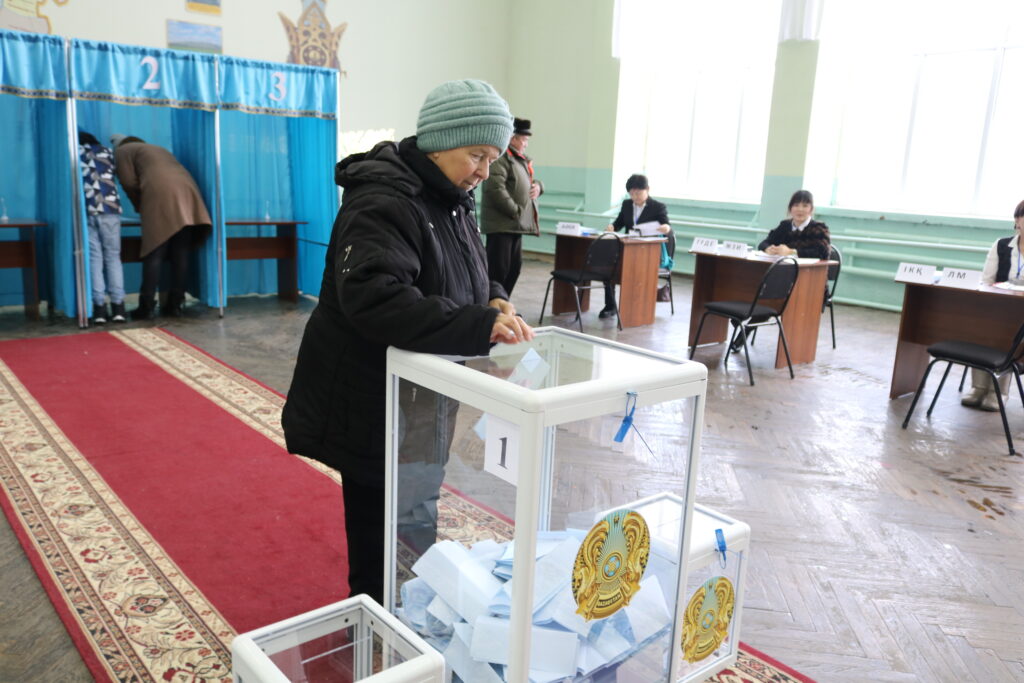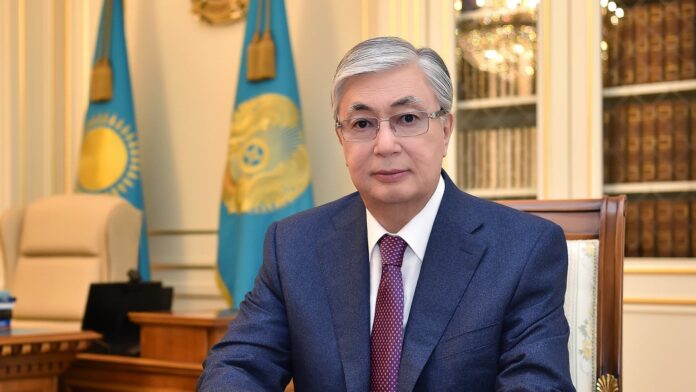By Raza Syed
Kazakh President Kassym-Jomart Tokayev dissolved the lower House of Parliament, mazhilis, and called for a snap elections for March 19. These elections will take place a year after the riots, following which strongman Nursultan Nazarbayev finally left the political scene.
Tokayev has presented himself as a truly independent figure. He hopes to cement this status by securing a popular mandate to rule, as distinct from a mandate from either Nazarbayev, his predecessor, or Putin.
The UK has had close diplomatic ties with Kazakhstan for over 30 years. These have now developed into excellent relationships in the areas of trade, technology transfer, education, security and investment.
Holding elections to the Mazhilis in the first half of this year was publicly suggested by President Tokayev in his state-of-the-nation address in September 2022. This was followed by presidential elections in November, which opened a new political season.
Tokayev’s constitutional amendments may be regarded as true steps towards democratisation. Kazakhstan has abolished the death penalty, taken steps to combat nepotism by barring the president’s close relatives from entering politics or holding senior positions in state companies or regional administrations, and repealed a 2000 law granting legal immunity to Nazarbayev and his family. The constitutional amendments also envision the removal of the president every seven years.
In a statement made after the announcement of the elections, the Kazakh leader noted that the holding of early elections to the Mazhilis was dictated by the logic of the constitutional reforms, following which the country adopted the new, more fair and competitive rules for forming a representative branch of power.

The referendum, which took place in June, was in line with President Tokayev government’s “Just Kazakhstan” policy and was in response to a public reaction on the autocratic rule by the former president, Nursultan Nazarbayev.
Nazarbayev, who led the country for 30 years and officially stepped down in 2019, nevertheless retained leverage over the state apparatus in his hands, taking the post of chairman of the Security Council, through which he controlled army, police and intelligence services.
Nazarbayev finally resigned in January 2022.Kassym-Jomart Tokayev, who served as Director General of the UN office in Geneva in 2011-2013, accelerated the implementation of social and political reforms on a national wave of widespread support.
The announcement of parliamentary elections is part of Tokayev’s strategy to reboot a neglected system of state administration, which has much in common with the Soviet one with its aged party nomenklatura. It will help change the political landscape of Kazakhstan, making it democratic, and therefore more competitive.
The Mazhilis elections will take place in a completely new political environment: 70 percent of Mazhilis deputies will be elected from party lists and 30 percent- in single-mandate districts.
Key changes in the upcoming elections include: reduced threshold for parties to enter the Mazhilis from 7 to 5 percent, a 30 percent quota for women, youth and people with special needs has been fixed on the party lists, and an “against all” column on the electoral ballot.
The procedure for registering political parties has also been greatly simplified in the country, as a result of which several new political forces have been registered in Kazakhstan for the first time in a long time.
All these reforms, which were implemented throughout the previous year, made this election different from past ones. Their main distinguishing feature was a large number of independent candidates.
These reforms of Kassym-Jomart Tokayev were also approved by the Secretary of State for Foreign, Commonwealth and Development Affairs of the United Kingdom of Great Britain and Northern Ireland, James Cleverly.
“The Foreign Secretary expressed support for the political and socio-economic reforms being carried out in Kazakhstan aimed at building a fair state, a fair economy and a fair society,” declared British and Kazakh Foreign Ministers’ joint statement dated December 20, 2022.
British-Kazakh relations have been raised to a strategic level not least because of the fabulous wealth of this country in uranium, rare elements, oil, gas, metals, and a highly skilled workforce.
“Welcoming the achievements of Kazakh-British diplomatic relations over the past 30 years, the Foreign Ministers discussed a range of global and regional issues and promising future areas for bilateral cooperation and strategic partnership,” said a statement.
Kazakhstan is entering a new era of its development, and the parliamentary elections are designed to be the final stage of the reloading of the state institutions of Kazakhstan, giving real content to the formula ‘strong President – influential Parliament – accountable Government’.
With this background Kazakhstan, now become the UK’s most reliable partner in the Eurasian region.
This could be confirmed by James Cleverly’s visit to Kazakh capital, Astana, as early as this year. His visit to Kazakhstan will help in strengthening the mutual relations between the two countries.In the nearest future ,new strategic partnership and cooperation agreement between UK and Kazakhstan will be signed.






